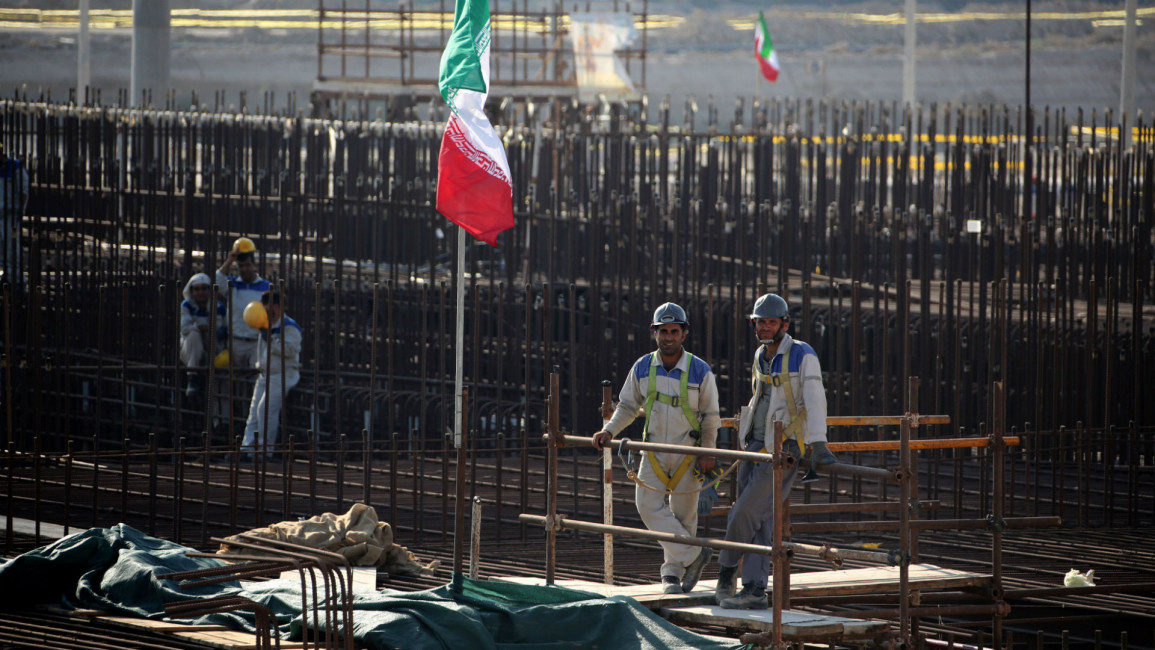Iran 'may withdraw' from nuclear treaty over Europe dispute
The UK, France and Germany launched a process last week charging Iran with failing to observe the terms of the 2015 nuclear deal, a move that could eventually see the Security Council reimpose international sanctions on the country.
Iran has accused the three EU member states of inaction over sanctions the United States reimposed on it after unilaterally withdrawing from the landmark accord in 2018.
The European move "has no legal basis" and if they take further measures "Iran's withdrawal from the NPT will be considered", Foreign Minister Mohammad Javad Zarif was quoted as saying by the Iranian parliament's website.
The landmark 2015 deal reached with the UK, China, France, Germany, Russia and the US gave Iran relief from sanctions in return for curbs on its nuclear programme.
Since the US pullout, Iran has progressively rolled back its commitments to the accord - the Joint Comprehensive Plan of Action - in retaliation.
Read more: Indepth: Is Iran's nuclear deal still viable?
It has hit out at the three European nations that remain party to the JCPOA for failing to live up to their promises to ease the impact of US sanctions on its oil-based economy.
"If the Europeans return to the commitments, Iran will also stop reducing its commitments, but if the Europeans continue as they have been... we have different options," said Zarif.
The foreign minister said Iran's President Hassan Rouhani had warned former EU foreign affairs chief Federica Mogherini about such consequences in three letters sent in 2018.
"It was stated in the president's letter that if this issue is referred to the Security Council, Iran's withdrawal from the NPT will be discussed but before that we can consider other (options)," he said.
Twitter Post
|
European officials have made it clear that the decision to trigger the dispute resolution mechanism was made in a bid to bring Iran back into compliance and save the accord.
But Iran's foreign ministry on Monday warned more measures could be taken in retaliation for the European move.
"If these talks continue, Iran is formulating a final and even more effective" measure regarding the nuclear deal, spokesman Abbas Mousavi told a news conference in Tehran.
Asked by reporters to elaborate, Mousavi said it would be a "serious" measure, but he gave no further details.
"Different options are on the table for Iran that will be announced if a consensus is reached" by its leaders, he said.
However, Iran has stressed that the steps it has taken to roll back the nuclear deal can be reversed if its interests are realised.
Tehran also insisted the "door to negotiations" remains open amid continued efforts to protect the nuclear deal with world powers that has come under threat since the US withdrew from the deal in 2018.
"Tehran still remains in the deal... The European powers' claims about Iran violating the deal are unfounded," Mousavi said, saying that the "door to negotiations" had not been closed.
"Whether Iran will further decrease its nuclear commitments will depend on other parties and whether Iran's interests are secured under the deal," Mousavi added.
On Sunday, Iran's parliamentary speaker warned of unspecified repercussions for the UN's nuclear watchdog if European nations that launched a dispute mechanism against the Islamic Republic act "unfairly".
"What the three European countries did regarding Iran's nuclear issue... is unfortunate," parliamentary speaker Ali Larijani was quoted as saying by state news agency IRNA.
"We clearly announce that if Europe, for any reason, uses Article 37 of the nuclear agreement unfairly, then Iran will make a serious decision regarding cooperation with the agency," he said, referring to the International Atomic Energy Agency (IAEA).
Russia also condemned the European move, warning it risked causing a "new escalation".
In Moscow, the Russian foreign ministry said it saw "no reason for such a move".
"We do not rule out that the thoughtless actions of the Europeans could lead to a new escalation around the Iranian nuclear accord," it said in a statement.
Since May 2019, Iran has progressively scaled back some commitments under the agreement in response to the US sanctions and Europe's inability to circumvent them.
The decision to begin the so-called dispute mechanism process comes as tensions soar between the West and Iran following the killing of top commander Qasem Soleimani in a US air strike, and the admission by Tehran days later that it had accidentally shot down a Ukrainian airliner.
"The issue is not Iran's behaviour," said the parliamentary speaker.
"It is America's threats that have pushed a powerful European country to a humiliating and unjust" position, said Larijani.



